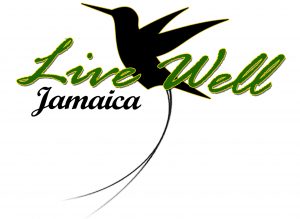Caribbean, 4 July, 2017 (IUCN) – The International Union for the Conservation of Nature (IUCN) and the United Nations Environment Programme (UN Environment) are increasing its efforts to help Caribbean countries boost fair access to their genetic resources and equitable sharing of benefit derived, through the release of two short videos on the Nagoya Protocol.
The two videos – a short two and a half minutes and longer 10 minutes production – introduce viewers to the Nagoya Protocol and what it will mean for them individually and the Caribbean as a whole. They are a part of a regional/national awareness campaign on the Nagoya Protocol – which is still new to the Caribbean.
“We made the videos because we wanted people to easily understand what the Nagoya Protocol is and what it means for the Caribbean Region,” said María Pía Hernández, Coordinator of the IUCN’s Biodiversity and Rights Unit, as she explained that prior to the Nagoya Protocol there were no guidelines in place to ensure that countries and individuals were properly compensated for the use of their traditional knowledge and genetic resources.

“It is also very important that countries sign on to the Protocol so that they can protect their natural resources, as well as get compensation and other benefits depending on how the resources are used,” said Dr Grethel Aguilar, Regional Director of the IUCN’s Regional Office for Mexico, Central America and the Caribbean. The IUCN is the world’s largest and most diverse environmental union composed of both government and civil society organisations, working for a just world that values and conserves nature.
The Nagoya Protocol is an international agreement that focuses on the fair and equitable sharing of the benefits from the sustainable use of genetic resources. It is an agreement that has particular relevance for researchers and prospective business developers that use the Caribbean’s natural resources. The Protocol was adopted on October 29, 2010 in Nagoya, Japan, and entered into force on 12 October 2014. It has been ratified by 78 parties, which includes 77 UN member states and the European Union. It is the second Protocol to the CBD; the first is the 2000 Cartagena Protocol on Biosafety.
The IUCN Regional Office is partnering with the UN Environment Programme in a project funded by the Global Environment Facility (GEF) to work with regional governments, research institutions and other partners in the Caribbean to support countries to overcome barriers linked to poor understanding of ABS, the Nagoya Protocol and the implications of protocol ratification and requirements for implementation.
The project works with other partners as Caribbean governments, regional institutions (CARICOM, OECS), Secretariat of the Convention on Biological Diversity and GIZ-ABS initiative in eight Caribbean countries (Antigua and Barbuda, Barbados, Grenada, Guyana, Jamaica, St. Kitts and Nevis, St. Lucia and Trinidad and Tobago). The Caribbean is a rich biodiversity hotspot. It has over 11,000 plant species and about 72 percent of these are found only in this region. However, Caribbean islands need to reinforce their legislation and policies to protect their genetic resources in case a country’s resources are accessed and developed commercially to ensure the country benefits from it.
The two promotional videos will be disseminated to regional media houses and other key national stakeholders over the next few months. They will also be available on the IUCN’s website and social media sites. The two minute video gives a basic introduction of the Nagoya Protocol while the 10 minute one gives more detail about how it works in practice.
The videos can be accessed at the following sites
The Nagoya Protocol
https://www.youtube.com/watch?
The Nagoya Protocol: Opening doors for Caribbean People
https://www.youtube.com/watch?
For more information please contact:
Melesha Banhan, Coordinator Advancing the Nagoya Protocol in Countries of the Caribbean Region Project Tel: 6479376273; e-mail:melesha.banhan@iucn.org









